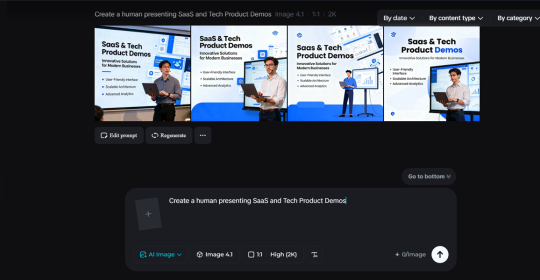Data warehouses serve as the central repositories for storing and managing these data assets, providing a foundation for analytics and decision-making. However, the sheer volume and complexity of data often present challenges in extracting meaningful information efficiently.
Data warehouse consultants play a pivotal role in helping organizations navigate these challenges and maximize the potential of their data infrastructure. With their expertise in data management and analytics, these experts assist businesses in implementing and optimizing data warehouses to meet their specific needs and objectives.
Introducing generative artificial intelligence (AI), a groundbreaking technology poised to transform how businesses harness their data warehouses. Generative AI represents a subset of AI techniques empowering machines to create new content, whether it's images, text, or entire datasets, by learning patterns and examples from input data. By tapping into the capabilities of generative AI services, organizations can automate numerous aspects of their business processes within data warehouses, resulting in heightened efficiency, improved decision-making, and a significant competitive edge.
Let's delve into how data warehouses can leverage generative AI to streamline and automate business processes.
Data Generation and Augmentation
Generative AI models, such as Generative Adversarial Networks (GANs) or Variational Autoencoders (VAEs), can be employed to generate synthetic data that closely resembles real-world data. This capability is particularly useful when dealing with limited or sensitive data sets, as it allows organizations to augment their existing data with synthetic samples to improve the robustness and diversity of their analytics models. For example, in financial services, synthetic data generation can help simulate various market scenarios for risk analysis and portfolio management without exposing actual customer data.
Anomaly Detection and Quality Assurance
Generative AI algorithms can be utilized for anomaly detection within data warehouses by learning the normal patterns and distributions of data. Any deviations from these learned patterns can be flagged as potential anomalies, indicating data quality issues, security breaches, or fraudulent activities. By automatically detecting anomalies, organizations can promptly address data integrity issues and ensure the reliability of their analytics results.
Natural Language Processing (NLP) Applications
With the advancements in generative AI for NLP tasks, data warehouses can automate text-based business processes such as data categorization, summarization, and sentiment analysis. Natural language understanding models can parse through unstructured textual data stored in data warehouses, extract relevant information, and generate summaries or insights to aid decision-making. This automation of text analysis tasks can significantly reduce manual efforts and accelerate the pace of deriving actionable insights from textual data.
Predictive Analytics and Forecasting
Generative AI models can enhance predictive analytics and forecasting capabilities by generating future scenarios based on historical data trends. By analyzing patterns and correlations within large datasets, these models can generate accurate predictions for various business metrics such as sales forecasts, demand projections, or customer behavior trends. This automation of predictive modeling enables organizations to anticipate market trends, optimize resource allocation, and make data-driven strategic decisions.
Personalization and Recommendation Systems
In e-commerce and digital marketing, generative AI can power recommendation systems that personalize customer experiences based on their preferences and behavior. By analyzing past interactions and generating user profiles, these systems can deliver tailored product recommendations, content suggestions, or promotional offers to individual users, thereby enhancing customer engagement and driving conversion rates. Data warehouses play a crucial role in storing and processing the vast amounts of data required to train and deploy these personalized recommendation models.
Automated Report Generation
Generative AI can automate business processes and the tedious task of report generation by analyzing data stored in warehouses and generating custom reports tailored to specific business requirements. These automated reporting systems can extract relevant insights, visualize data trends, and generate comprehensive reports in various formats, thereby saving time and effort for data analysts and decision-makers. Additionally, by integrating with business intelligence tools and dashboarding platforms, these automated reports can facilitate real-time monitoring of key performance indicators (KPIs) and facilitate data-driven decision-making across the organization.
Let’s summarize
In conclusion, the integration of generative AI techniques within data warehouses holds immense potential to transform how businesses manage and leverage their data assets. By automating various aspects of data processing, analysis, and decision-making, organizations can unlock new opportunities for innovation, efficiency, and competitive advantage. However, it's crucial to ensure ethical considerations, data privacy, and regulatory compliance while implementing generative AI solutions in data warehouse environments. As the field of generative AI continues to advance, businesses that embrace these technologies will be better positioned to thrive in the data-driven economy of the future.






